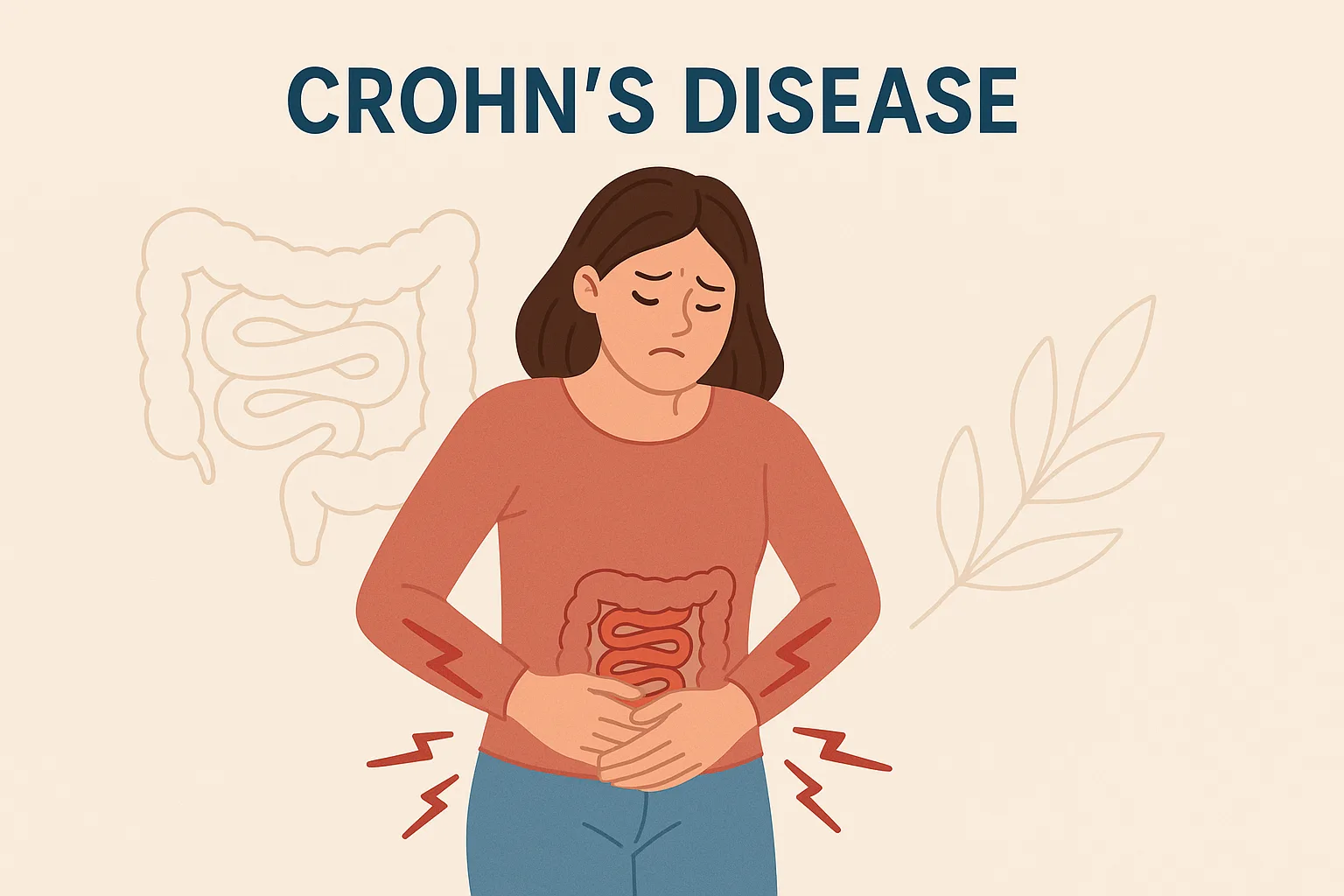What is Crohn’s Disease?
Crohn’s Disease is a type of inflammatory bowel disease (IBD) that causes chronic inflammation in the digestive tract. It can affect any part of the gastrointestinal tract from mouth to anus, but most commonly impacts the small intestine and the beginning of the colon.
Unlike common digestive issues, Crohn’s is an autoimmune condition where the body mistakenly attacks its own tissues, leading to inflammation, pain, and other symptoms.
Common Symptoms of Crohn’s Disease
Crohn’s Disease symptoms can vary in severity, but often include:
- Abdominal pain and cramping
- Persistent diarrhea
- Fatigue and weakness
- Weight loss and malnutrition
- Blood in stool
- Mouth sores
- Reduced appetite
- Fever
These symptoms can appear suddenly and range from mild to severe. Flare-ups and remission periods are common in Crohn’s patients.
Causes and Risk Factors
The exact cause of Crohn’s Disease remains unknown, but several factors are believed to contribute:
- Immune System Malfunction: The immune system may attack healthy digestive tissues.
- Genetics: Having a family history increases your risk.
- Environmental Factors: A Western diet, smoking, and antibiotic use may increase risk.
- Microbiome Imbalance: Gut bacteria play a crucial role in immune and digestive health.
How is Crohn’s Disease Diagnosed?
Diagnosis usually involves a combination of:
- Blood tests (to check for inflammation or anemia)
- Stool tests (to rule out infection)
- Colonoscopy or Endoscopy
- Imaging scans (CT or MRI)
These tools help doctors assess the inflammation and damage in the digestive tract.
Treatment Options
While there’s no permanent cure, Crohn’s can be managed through:
1. Medication
- Anti-inflammatory drugs (like corticosteroids)
- Immune system suppressors
- Biologic therapies (target specific proteins in the immune system)
2. Lifestyle and Diet Changes
- Low-residue or low-fiber diet during flare-ups
- Avoiding trigger foods (e.g., dairy, spicy foods, alcohol)
- Staying hydrated and taking nutritional supplements if needed
3. Surgery
When medications don’t work or complications arise (like bowel obstruction), surgery may be necessary to remove the affected portion of the intestine.
Daily Life with Crohn’s: Tips for Better Living
- Track symptoms and diet: Use a journal to monitor flare-ups and identify triggers.
- Stress Management: Practice meditation, yoga, or breathing exercises to reduce stress-related symptoms.
- Regular Check-ups: Stay in touch with your healthcare team and adjust treatment plans as needed.
- Support Groups: Join communities online or offline to connect with others living with IBD.
Final Thoughts
Living with Crohn’s Disease can be challenging, but with the right information, support, and care plan, many individuals lead active, fulfilling lives. Stay informed, prioritize gut health, and take proactive steps to manage your symptoms.

